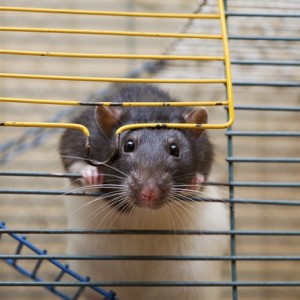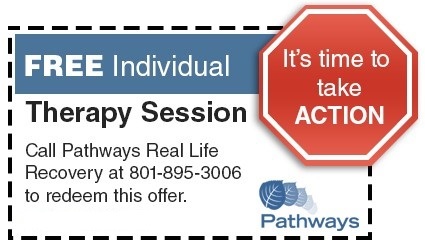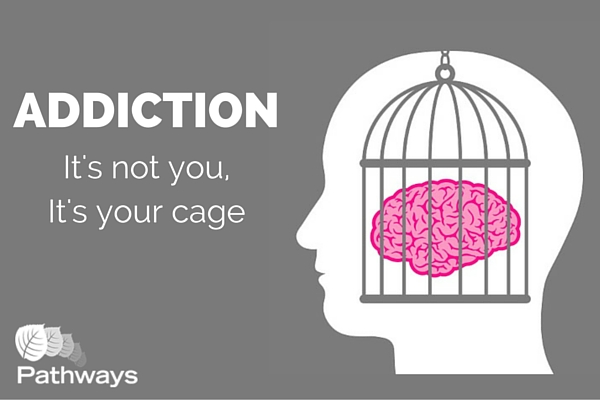For 100 years, the so called “war on drugs” has waged. Thousands and thousands of people have lost their lives, few of that number being actual addicts. Billions have been spent, yet the rates of addiction and drug sales are going nowhere but up—Why? Every day in Utah, another loved one of an addict finds themselves asking that question, “Why?” It is the same question asked by the world renowned author of the book “Chasing the Scream”, Johann Hari, when she set out on her eye-opening 30,000 mile journey around the globe to find the answer. What she found was astonishing. Everything that society has been taught, everything that people think they know and everything that is believed about the “war on drugs,” as well as addiction, is wrong.
Addicts become so fixated on a drug or behavior that it is seemingly impossible to stop. They return to the honeypot that nurtures their addiction again and again—until death finally sets them free.
Take a moment and consider, is it really the drug that is the nurturer? Or the world in which the addict is living. The prior has been preached in the United States for over a century. However, the word, “why,” penetrates that fabric that has been woven for society that says, “This behavior is caused by the substance and the mind of the person.” Many now believe that addiction is a cage, not the substance and not the addict.
How do we unlock that cage and bring the addict back?
Rat Park and the Vietnam War
What is the root cause of drug addiction? Most would probably point their finger at the drugs themselves. If all the drugs were suddenly gone, would there be such a thing as addiction? If you were to do a certain drug for 25 days straight, stopping cold turkey at the end, your body would need the drug. That is what addiction is—or is it?
In the 1980’s, an experiment was conducted in the United States that used rats to test this theory of addiction. This work was credited to the Partnership for a Drug Free America. It was not grand, and simply consisted of one rat, stuck in a cage with two water bottles. One of the bottles contained plain water. The other had a drug additive. Every time that the experiment was conducted, the results were the same; the rats became obsessed with the drug additive water, going for more and more until they fell dead.
The advert of the Partnership for a Drug Free America released a statement with the results of their findings as well as a dire warning—this drug can do the same to you.

One Vancouver Professor of Psychology, Bruce Alexander, saw that there was a flaw in this experiment. Each rat was completely isolated and alone in their cage. There was nothing to hold the rat’s attention and take up its time, except the drug-laced water. This piqued his interest and he began to wonder what would happen if the rats were not alone. Thus, “Rat Park” was created.
This cage was a rat utopia. There were plenty of things to do, the interior was lush and most importantly, there were plenty of rat friends. Rat Park, like the first experiment, also had two water bottles. The rats did drink from both, but what happened next shattered the foundation of drug addiction.
These happy rats did not become dependent on the drug-laced water. In fact, they despised it all together after giving it a try. Not one of these rats died.
Those who conducted the experiment that was Rat Park saw that there was already a human counterpart. Soldiers who had been fighting in the Vietnam War often became heavy users while they were deployed. This frightened the American public, who were under the impression that a large number of drug addicts were coming home from war. To the surprise of many experts, the overwhelming majority of these soldiers simply stopped using when they arrived back in their homeland.
It was clear, the isolated cage nurtured addiction.
What Causes Addiction?
The discoveries of both Rat Part and the Vietnam War challenged both sides of the arguments over addiction. The right wing touted that addiction was the result of a broken moral compass, propelled by bad choices and too much partying. The left considered addiction to be a disease and a chemical hijacking of the brain.
To challenge these views, consider this: If the right wing theory were right, and addiction was the result of simply using, then why is it that hospital patients who receive the purest grades of certain drugs, which can also be found on the street, emerge from the hospital free from addiction? If the left were right, and addiction was the result of chemicals wreaking havoc on the brain, where are the chemicals that build a serious gambling addiction?
Of course, no one disputes that chemicals do play a small role in addiction, but they are simply a component that is part of a much larger picture. Professor Alexander argued that addiction was an adaptation to surroundings. Addiction is not you, it’s your cage.
What About Addiction Recovery?
Bruce Alexander took his Rat Park experiment further after the initial phase. He took a group of rats and recreated the setting of the first rat experiment, isolating these specimen and leaving them alone with nothing but the two water bottles. After a short time, each rat became a compulsive user of the drugged water. For 57 days, Professor Alexander allowed the rats to feed their addiction. He then put the rats back into Rat Park and watched as they went through a few days of withdrawals. To his surprise, none of the rats went back to using the drugs once they had a happy life again.
Street-addicts are very much like the isolated rats. They have nothing to do and nowhere to turn, except substance abuse. A medical patient is like the rats who were put back into Rat Park after 57 days of using, they simply pick up their happy life and move forward.
The drug addict bonds with drugs because there is nothing else. Humans have a deep need for connections. These connections are often between passions or people, positive factors that take up time. Addiction is also a connection, one that comes about when the person is trapped in a cage with only the drug to lean upon.
Human connection is the opposite of addiction, not sobriety.
Time to End the War on Addicted People
As previously discussed, there is a chemical factor that links a substance with the user, but this is a very small component of addiction. The war on drugs has been built on the premise that if drugs were completely eradicated, there would no longer be such a thing as addiction. Knowing what is now known, that disconnection is the driving force behind addiction, not the drugs themselves. This war makes no sense.
In fact, the war on drugs drives an even larger wedge between the addict and the social connection that they so desperately need. Thousands are imprisoned, isolated, stuck in a cage on a daily basis.
A few first world, European nations spent many years and assets fighting their own war against drugs. They soon came to the same conclusions about human connection and how it directly correlates with addiction. For this reason, these countries immediately stopped their war and shifted their focus to fighting for a different cause.
They opted for the decriminalization of all drugs. The money that was to be spent on arrests, investigations and punishments went to helping addicts reconnect with society and build lasting bonds with the joyful world that they were in.
Pathways Real Life Recovery Offers Addiction Recovery that Reconnects Families
Pathways Real Life Recovery in Sandy, Utah believes in the power to change. Our philosophy is built on the concept that social connections are vital to a thriving lifestyle. We have built a recovery system that is designed to help individuals and families leave their addictions in the isolated cage, and reconnect with the world. Human beings are bonding animals by nature. Love is a driving force that nurtures those connections.
At Pathways Real Life Recovery, we treat the person’s mind, body and spirit in its entirety. Each person is provided with an individual recovery plan. The whole family is encouraged to participate in our treatment program, and our team will work with families to tackle their concerns and begin the healing from the comfort of their home. Instead of enabling, the family will learn to empower one another. Family support provides the addict with a huge advantage during recovery and a strong network of support.
Family therapy is unique and inclusive. Each member will learn to rely on one another to meet desired goals. Our approach to treatment is aimed at strengthening the family unit so that bonds are impenetrable in the future.
For more information, check out our services page or contact a Pathways representative today.


